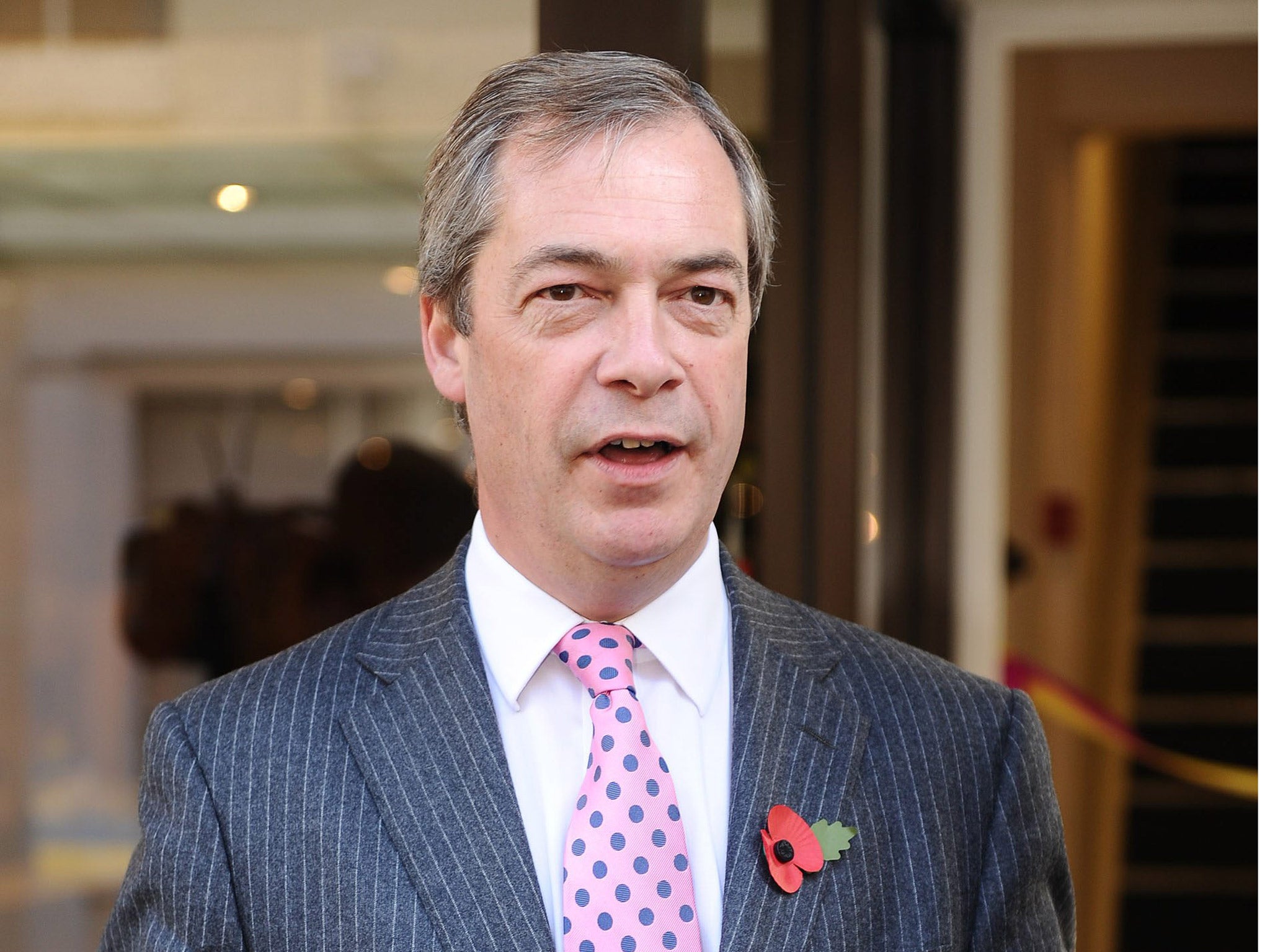Majority of British public wants to leave EU
Conservatives and Ukip 'at war' as ComRes survey for The Independent finds 54 per cent want Britain to leave the EU provided it could keep its close trade relationship with the bloc

Your support helps us to tell the story
From reproductive rights to climate change to Big Tech, The Independent is on the ground when the story is developing. Whether it's investigating the financials of Elon Musk's pro-Trump PAC or producing our latest documentary, 'The A Word', which shines a light on the American women fighting for reproductive rights, we know how important it is to parse out the facts from the messaging.
At such a critical moment in US history, we need reporters on the ground. Your donation allows us to keep sending journalists to speak to both sides of the story.
The Independent is trusted by Americans across the entire political spectrum. And unlike many other quality news outlets, we choose not to lock Americans out of our reporting and analysis with paywalls. We believe quality journalism should be available to everyone, paid for by those who can afford it.
Your support makes all the difference.The Conservatives and the United Kingdom Independence Party were "at war" tonight as they both rejected a controversial call by a senior Tory for them to forge an electoral pact.
Michael Fabricant, a Tory vice-chairman, exposed his party's fears about Ukip's advance by proposing the anti-EU party stand aside at the 2015 election in return for a referendum on EU membership. The call struck a chord among many Tory MPs but was disowned by the party leadership.
The turmoil came amid fresh evidence that the public is turning against the European Union. A ComRes survey for The Independent found that a majority of people (54 per cent) want Britain to leave the EU provided it could keep its close trade relationship with the bloc, while 36 per cent disagree.
The finding suggests that Eurosceptics who want the UK to withdraw from the EU might be able to win an “in/out” referendum if they could persuade the public that trade ties with the other 26 EU members would not be damaged. Pro-EU campaigners claim Britain would have little say over trade rules if it left.
Ukip leader Nigel Farage contemptuously dismissed the proposal by Michael Fabricant, a Conservative vice-chairman, for an electoral pact with the Tories. Mr Fabricant provoked uproar by suggesting that Ukip could step aside at the next election in return for a promise by the Prime Minister to hold a referendum on Britain’s EU membership, as The Independent disclosed yesterday.
Mr Farage insisted his party was “at war” with the Tories, declaring that he could not even contemplate speaking to them while Mr Cameron was leader because he had broken a previous promise to hold a Europe referendum.
The Conservatives “categorically” ruled out any prospect of a deal. Grant Shapps, the Tory chairman, said: “I want to win the next election outright of course for the Conservatives so that we have an outright majority and we don’t have to be in coalition.”
A Tory spokesman said: “Michael Fabricant does a great job campaigning in by-elections but he doesn’t speak for the party on this issue. The safest way to protect Britain’s interest in Europe is to vote Conservative. That’s why we’ll have Conservative candidates in every seat at the next election.”
But Mr Fabricant won the support of fellow Tory MP Stewart Jackson, who warned that Ukip could do “very serious damage” to the Conservatives at the ballot box. He called on the Prime Minister to “show real leadership” by calling a referendum on EU membership alongside the next general election.
According to ComRes, people are evenly divided on whether Britain should remain a full member of the EU. Some 46 per cent agree, while 45 per cent disagree. Those aged 18-34 are the most likely age group to agree (71 per cent), compared to 34 per cent of those aged 65 and over.
Labour’s 11-point lead in its last survey for The Independent four weeks ago has dropped to seven points. Labour is on 42 per cent (down two points), the Conservatives 35 per cent (up two points), the Liberal Democrats 10 per cent (down two points) and others 13 per cent (up two points). The figures would give Labour an overall majority of 84.
Ukip is up one point to 6 per cent. Some 7 per cent of people who voted Conservative at the 2010 election now support Ukip, as do 3 per cent those who voted Labour.
ComRes interviewed 1,002 GB adults by telephone between 23-25 November. Data were weighted to be demographically representative of all GB adults. Data were also weighted by past vote recall. ComRes is a member of the British Polling Council and abides by its rules.
Join our commenting forum
Join thought-provoking conversations, follow other Independent readers and see their replies
Comments